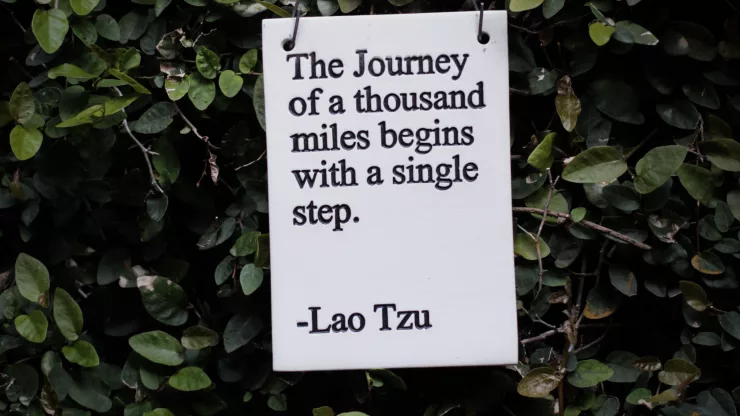Dealing with Depression During Life Transitions
Life transitions can be challenging and stressful, and they often trigger depression in many people.
Whether it’s a new job, a new relationship, or a significant loss, these changes can be overwhelming and difficult to cope with.
Depression is a common mental health condition that affects millions of people worldwide.
It can leave you feeling hopeless, helpless, and alone.
However, it’s crucial to remember that depression is treatable, and there are many strategies you can use to manage it.
Jump to Section
Understanding Depression During Life Transitions
Depression is a mood disorder that affects the way you feel, think, and behave.
It can be triggered by a significant life change, such as a divorce, job loss, or the death of a loved one.
Depression during life transitions is common because these changes can disrupt your routine and leave you feeling uncertain about the future.
It’s essential to understand that depression is not a sign of weakness, and it can happen to anyone.
Identifying Triggers and Symptoms of Depression
Identifying the triggers and symptoms of depression is the first step in managing it. Some common triggers of depression during life transitions include:
- Loss of a loved one
- Job loss or retirement
- Divorce or relationship breakdown
- Moving to a new city or country
- Health problems
- Financial difficulties
The symptoms of depression can vary from person to person, but common signs include:
- Feelings of sadness, hopelessness, or emptiness
- Loss of interest in hobbies or activities you once enjoyed
- Fatigue and lack of energy
- Difficulty sleeping or oversleeping
- Changes in appetite and weight
- Difficulty concentrating or making decisions
- Thoughts of self-harm or suicide
Coping Strategies for Managing Depression
Managing depression during life transitions can be challenging, but there are many coping strategies you can use to help you feel better. Here are some tips:
- Practice self-care: Take care of your physical and emotional needs by eating well, getting enough sleep, and engaging in regular exercise.
- Connect with others: Spend time with loved ones, join a support group, or seek out professional help.
- Set realistic goals: Break down your goals into small, achievable steps.
- Develop a routine: Establish a daily routine that includes activities you enjoy and that give you a sense of purpose.
- Challenge negative thoughts: Identify negative thoughts and challenge them with positive affirmations.
Seeking Professional Help for Depression
If you’re experiencing depression during a life transition, it’s essential to seek professional help.
A mental health professional can help you identify the underlying causes of your depression and develop a treatment plan that works for you.
Treatment options may include therapy, medication, or a combination of both. Remember that seeking help is a sign of strength, and it can help you feel better and improve your quality of life.
Building a Support System for Depression
Building a support system is essential when dealing with depression during life transitions. Having a network of supportive friends and family members can provide you with emotional support and help you feel less alone.
Consider joining a support group or seeking out a therapist who specializes in depression.
Remember that you don’t have to go through this alone, and there are people who care about you and want to help.
Embracing Change and Finding Hope
Life transitions can be difficult, but they can also be an opportunity for growth and self-discovery. Embrace change and focus on the positive aspects of your new situation.
Remember that change is a natural part of life, and it can lead to new opportunities and experiences.
Have hope that things will get better, and remember that you have the strength and resilience to overcome any challenge.
FAQ
How long does depression last during life transitions?
The duration of depression during life transitions can vary from person to person. Some people may experience symptoms for a few weeks, while others may experience them for several months or even years.
It’s important to seek professional help if you’re experiencing symptoms of depression that are interfering with your daily life.
Can depression be cured during life transitions?
Depression is a treatable condition, and many people recover with the right treatment and support. However, there is no cure for depression, and it can recur in the future.
It’s essential to develop coping strategies and seek professional help to manage depression during life transitions.
How can I support a loved one who is experiencing depression during a life transition?
If you have a loved one who is experiencing depression during a life transition, it’s essential to offer them your support and encouragement.
Listen to them without judgment, and encourage them to seek professional help.
Offer practical support, such as helping with household chores or running errands. Remember that depression is a treatable condition, and your support can make a significant difference in their recovery.
Managing depression during life transitions can be challenging, but it’s important to remember that you’re not alone.
Reach out for help, develop coping strategies, and focus on the positive aspects of your new situation.
Remember that change is a natural part of life, and it can lead to new opportunities and experiences. Have hope, and remember that you have the strength and resilience to overcome any challenge.

With a deep passion for personal development, Ben has dedicated his career to inspiring and guiding others on their journey towards self-improvement.
His love for learning and sharing knowledge about personal growth strategies, mindfulness, and goal-setting principles has led him to create My Virtual Life Coach.
Contact Ben at [email protected] for assistance.




